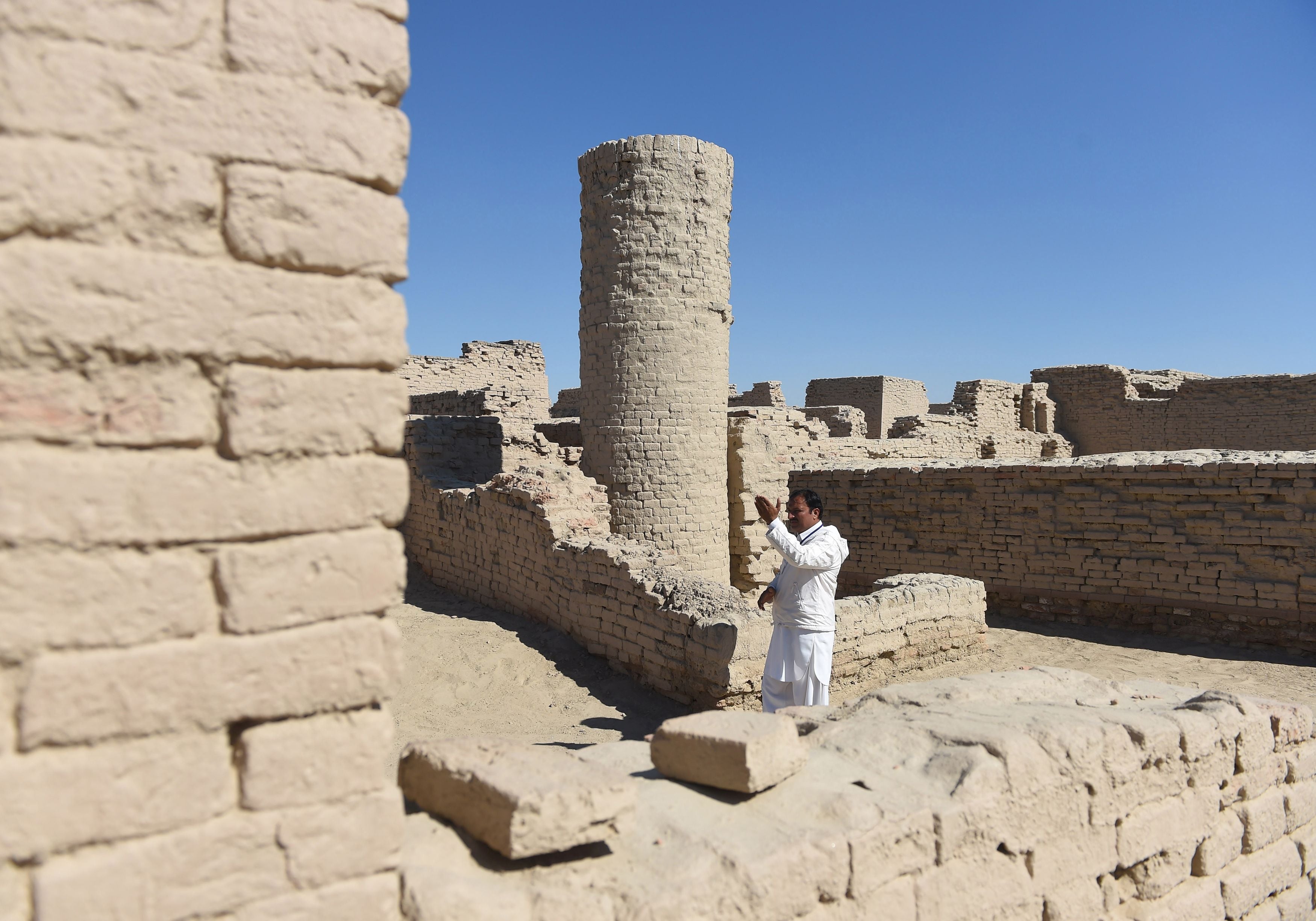Pakistan flood threatens one of world’s oldest known ancient cities
Mystery still surrounds the disappearance of the civilisation in this 4,500-year-old city, which coincided with those of ancient Egypt and Mesopotamia
Your support helps us to tell the story
From reproductive rights to climate change to Big Tech, The Independent is on the ground when the story is developing. Whether it's investigating the financials of Elon Musk's pro-Trump PAC or producing our latest documentary, 'The A Word', which shines a light on the American women fighting for reproductive rights, we know how important it is to parse out the facts from the messaging.
At such a critical moment in US history, we need reporters on the ground. Your donation allows us to keep sending journalists to speak to both sides of the story.
The Independent is trusted by Americans across the entire political spectrum. And unlike many other quality news outlets, we choose not to lock Americans out of our reporting and analysis with paywalls. We believe quality journalism should be available to everyone, paid for by those who can afford it.
Your support makes all the difference.Pakistan’s catastrophic floods are threatening one of the world’s oldest known cities after the large-scale devastation already led to the death of over 1,300 people and destroyed billions of dollars worth of property.
The authorities in the southern Sindh province have said the flooding poses an imminent risk to the ruins of Mohenjo-daro — a 4,500-year-old city of the ancient Indus Valley civilisation and a Unesco world heritage site.
The flooding has not directly hit Mohenjo-daro, but the record-breaking rains have inflicted damage on the ruins of the ancient city, said Ahsan Abbasi, the site’s curator.
“Several big walls, which were built nearly 5,000 years ago, have collapsed because of the monsoon rains,” Abbasi told The Associated Press on Tuesday.
He said dozens of construction workers under the supervision of archaeologists have started the repair work. Mr Abbasi did not give an estimated cost of the damages at Mohenjo-daro but Pakistan’s government has said the overall damages from the flood may be over $13bn (£11.3bn) now.
The site’s landmark “Buddhist stupa” – a large hemispherical structure associated with worship, meditation and burial – remains intact, Mr Abbasi said. But the downpour has damaged some outer walls and also some larger walls separating individual rooms or chambers.
Mr Abbasi said Mohenjo-daro’s civilisation built an elaborate drainage system, which has been critical in flooding in the past.
Mohenjo-daro translates to the “Hill of the Dead” or the “Mound of the Dead” in Sindhi. The site is crucial for several reasons. The Indus Valley is one of the oldest civilisations in the world and stands as proof of south Asia’s thousands of years of history.

The ruins were discovered in 1922, when a complex street grid and a sophisticated drainage system were found. But to this day, mystery surrounds the disappearance of its civilisation, which coincided with those of ancient Egypt and Mesopotamia.
Archaeologists believe the ruins could unlock the secrets of the Indus Valley people, who flourished around 3000 BC in what is now India and Pakistan.
The swelling waters of the Indus, a major river in this part of the world, have wreaked havoc as heavy rains and massive flooding unleashed devastation across much of Pakistan. The Sindh province, where the site lies, has been among the worst hit.
On Monday, army engineers made a second cut into an embankment at Lake Manchar, Pakistan’s largest freshwater lake, to release rising waters in hopes of saving the nearby city of Sehwan from major flooding.
This year’s floods have been one of the worst in Pakistan’s recorded history with several aspects pointing to the human-induced climate crisis as the underlying reason behind the large-scale devastation.
Apart from Pakistan, neighbouring Afghanistan, Bangladesh and India have also witnessed severe flooding this year after a record-breaking heatwave as the world has warmed over 1.1C.
South Asia is one of the most vulnerable regions to the worsening impacts of the climate crisis despite very little contribution to the creation of the problem. Both Pakistan and Bangladesh have less than 1 per cent share of carbon emissions.
Pakistan’s government has demanded rich countries take responsibility for polluting the environment which is leaving vulnerable countries like Pakistan more exposed to disasters and extreme weather events, an issue set to be discussed in the upcoming UN summit Cop27.







Join our commenting forum
Join thought-provoking conversations, follow other Independent readers and see their replies
Comments